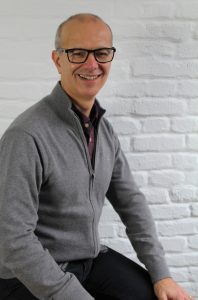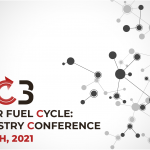Coordinator of the GENIORS project, Stéphane Bourg is also Project Manager at the French Alternative Energies and Atomic Energy Commission (CEA), in Marcoule (France). He has a longstanding experience in large European collaborative projects and has been in charge of ACSEPT, ACTINET-I3, TALISMAN and SACSESS.

Stéphane Bourg, coordinator of GENIORS
Why did you accept to coordinate the GENIORS project?
It was quite logical and natural for me because GENIORS is part of a long series of European Research and Innovation projects, which started back in 1992, dealing with chemical separation under nuclear transmutation operations (ACSEPT, SACSESS…). In 2008, I succeeded to Professor Charles Madic, a historical figure at the CEA who has just retired.
Why is the GENIORS project important and innovative for Europe?
For the first time, we are focusing on the 4th generation of reactors. The previous projects in the line of GENIORS only focused on the minimisation of highly radioactive waste from current reactors and with today’s recycled nuclear fuel. They aimed at recovering the most radiotoxic elements (including minor actinides) from the nuclear fuel to transmute them, or in other words, transform them into recycled material, reducing their amount and radiotoxicity. The 4th generation of reactors are fast reactors that require a lot more plutonium, which brings in new issues to deal with in the closed nuclear fuel cycle recycling process. Indeed, in the dissolution phase, materials and spent nuclear fuel have more resistance. During the separation step, the radiolytic effect is more important and kinetic energy plays a key role. Also, materials obtained through reconstitution processes are more homogeneous.
Why has the recycling of radioactive waste and nuclear fuel become so important?
There are economic, environmental and societal implications with the closed nuclear fuel cycle recycling process. Like iron or copper, uranium is a finite resource that is depletable and time-limited. Current recycling of spent nuclear fuel saves around 17 to 20% of natural uranium, which is quite significant! This amount of unmined natural uranium also contributes to reducing the nuclear sector’s environmental footprint that partly comes from the mining, conversion and enrichment phases (the front-end nuclear cycle). Today, nuclear energy is one of the least polluting energy sources, just after wind and hydropower. In France, moving to fast reactors means using less than 50 tons of uranium per year instead of the current 8 000. This represents a production of electricity for more than 10 000 years. These reactors also open opportunities to produce more plutonium, and to almost entirely feed the recycled fuel back in the reactor: this is called multiple recycling of plutonium. Finally, with fast reactors, the life-cycle of highly radioactive waste (minor actinides) is reduced from millions of years to only hundreds. This is very positive for improving the societal acceptance of nuclear energy.
The GENIORS project offers a number of activities to PhD students (workshops, seminars, travel bursaries…). Why is knowledge transmission to the next generation of researchers essential?
Researchers have always valued training and transmitting scientific knowledge to the younger generation. Many partners in the GENIORS project are financing theses and post-doctorates. In a certain way, we are preparing our successors by providing them with the opportunity to build their own network. We are aware that not all of them will continue working in our respective research centres, but those who will stay, will know each other well and be more inclined to work together in future projects. PhD students will also have the opportunity to chair or speak at the various international workshops organised by GENIORS. Lastly, and as part of the project, two students were selected for university exchanges. The call for such exchanges is continuously open and young researchers are strongly encouraged to apply!
Comments are closed.





